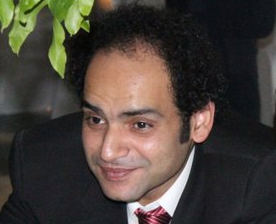Real estate sales in Egypt surged from EGP 400bn in 2019 to more than EGP 2.2trn last year, according to Hazem Helal, CEO of O West, Makadi Heights, and Byoum at Orascom Development. However, he cautioned that this growth in value does not necessarily indicate stronger demand, pointing instead to sharp exchange rate fluctuations—from around EGP 15.6 per USD in 2019 to nearly EGP 51 today, with parallel market rates exceeding EGP 70 at times—as a key driver behind inflated figures.
Ibrahim El-Missiri, Group CEO of Abu Soma Development Company (ASDC), said property pricing in Egypt must be grounded in transparent criteria that reflect actual costs and market dynamics. He advised buyers to be cautious of units priced below EGP 80,000 per sqm, stressing that the fair minimum for finished units is EGP 100,000 per sqm based on cost and return calculations.
“This price level is not arbitrary,” he explained. “It reflects construction and finishing costs, as well as the added value of working with a reputable developer.” El-Missiri pointed to rising material costs and the expected 15–25% increase in fuel prices next month—which will directly impact cement and steel—as further pressure on the sector.
He also raised concerns about market sustainability, noting: “The number of developers capable of executing and delivering projects does not exceed the fingers on one hand.” He highlighted a trend among some companies to accelerate delivery timelines to within two to three years, with a few handing over units in as little as one year—a model he described as the safest option for consumers.
El-Missiri emphasised that a developer’s financial strength and track record remain critical indicators of security for buyers and investors. He also noted growing demand for Red Sea properties, where prices have climbed more than 40% amid strong rental potential year-round, compared to seasonal demand in other regions.
For his part, Helal argued that a developer’s reputation is more important than the price per square metre. He warned against the widespread use of excessively long or unrealistic payment plans, describing them as a red flag for potential delivery delays. “Some companies launch projects with down payments of 5%, 2%, or even 0% to attract clients, but this often indicates a risk of non-delivery,” he said.
Helal explained that exchange rate volatility has previously forced some developers to use revenues from new projects to finance older ones that were not adequately hedged, a practice that can undermine market stability. He stressed that developers offering shorter payment plans are typically financially resilient players capable of weathering currency shocks. “For buyers, the decisive factor is not extended facilities but the guarantee of receiving their unit on time,” he concluded.
Echoing these concerns, Tarek Shoukry, Chairperson of the Real Estate Development Chamber at the Federation of Egyptian Industries and Deputy Head of the Housing Committee, linked a developer’s credibility directly to pricing strategies. “A committed developer sets a realistic price that ensures execution and delivery, while others may resort to artificially low prices or exaggerated facilities that are unsustainable,” he said.
Speaking during Cityscape Egypt 2025, Shoukry stressed that supply and demand remain the ultimate determinants of the market. He added that higher prices set by some developers do not necessarily deter buyers, as pricing often reflects project inputs, value-added services, and the broader community impact of the development.




